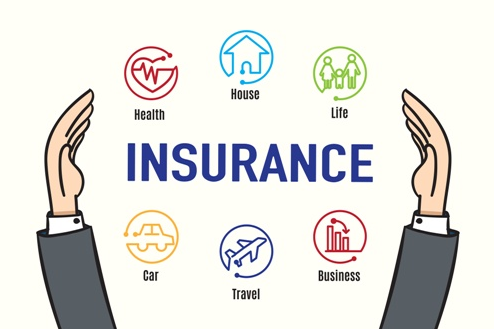Rental car insurance can be a complex topic, but understanding how it works is crucial for anyone planning to rent a car. In this comprehensive guide, we’ll delve into the intricacies of rental car insurance, exploring the different types of coverage, how they work, and what you need to consider before renting a car.
Types of Rental Car Insurance
Collision Damage Waiver (CDW)
A Collision Damage Waiver, or CDW, is not technically insurance but a waiver by the rental company that waives their right to pursue you for damages if the car is damaged or stolen. It typically comes with an excess/deductible amount that you would be responsible for.
Loss Damage Waiver (LDW)
Similar to CDW, the Loss Damage Waiver (LDW) is also a waiver by the rental company that covers the cost of damage or theft of the rental vehicle. It usually includes both collision and theft coverage.
Liability Insurance
Liability insurance covers damages to other people’s property or injuries to others in an accident that you are responsible for. It is often required by law and may be included in the rental rate or offered as an optional add-on.
Personal Accident Insurance
Personal Accident Insurance provides coverage for medical expenses for you and your passengers in the event of an accident. It may also include coverage for accidental death or dismemberment.
Personal Effects Coverage
Personal Effects Coverage insures your personal belongings in the rental car in case they are stolen or damaged. This coverage is usually limited and may have exclusions.
Coverage Provided by Rental Car Companies
Rental car companies typically offer a basic level of insurance coverage included in the rental rate. However, this coverage is often limited and may not provide full protection in the event of an accident or theft.
Credit Card Rental Car Insurance
Some credit cards offer rental car insurance as a benefit to cardholders. This coverage can vary widely depending on the card issuer and may have limitations and exclusions.
Insurance Coverage from Personal Auto Policies
Your personal auto insurance policy may provide coverage for rental cars, but the extent of coverage can vary. It’s important to check with your insurance provider to understand what is covered.
Considerations Before Purchasing Rental Car Insurance
Before purchasing rental car insurance, it’s important to evaluate your existing insurance coverage to avoid paying for duplicate coverage. Additionally, understanding the rental car insurance options available to you can help you make an informed decision.
Benefits of Purchasing Rental Car Insurance
Purchasing rental car insurance can provide peace of mind knowing that you are protected in the event of an accident or theft. It can also provide convenience by simplifying the claims process and avoiding potential out-of-pocket expenses.
Cost of Rental Car Insurance
The cost of rental car insurance can vary depending on a number of factors, including the type of coverage, the rental car company, and the location. Comparing insurance costs from different providers can help you find the best deal.
Rental Car Insurance Abroad
If you’re planning to rent a car abroad, it’s important to understand the differences in insurance requirements and coverage. International travelers may need to purchase additional insurance to ensure they are adequately covered.
How to File a Claim with Rental Car Insurance
In the event of an accident or damage to the rental car, it’s important to follow the proper steps to file a claim with your rental car insurance provider. This typically involves documenting the damage and providing the necessary information to the insurance company.
Common Misconceptions About Rental Car Insurance
There are several common misconceptions about rental car insurance, including beliefs about coverage that may not be true. It’s important to clarify these misconceptions to ensure you have the coverage you need.
Legal Requirements for Rental Car Insurance
In many states and countries, rental car insurance is required by law. Failing to have proper insurance can result in penalties, so it’s important to understand the legal requirements in your area.
Tips for Saving Money on Rental Car Insurance
There are several ways to save money on rental car insurance, including taking advantage of membership discounts and bundling insurance with other services. Comparing insurance costs from different providers can also help you find the best deal.
Insurance for Additional Drivers
If you plan to have additional drivers on your rental car, it’s important to understand the coverage options available. Adding additional drivers to your rental car insurance policy may come with additional costs.
Rental Car Insurance for Business Use
If you’re renting a car for business purposes, there may be specific insurance options available to you. It’s important to understand these options to ensure you are adequately covered.
Rental Car Insurance for Under 25 Drivers
Drivers under the age of 25 may face limitations and surcharges when renting a car. It’s important to understand these costs and ways to mitigate them if you fall into this age group.
Comparison of Rental Car Insurance Providers
There are many rental car insurance providers to choose from, each offering different coverage options and costs. Comparing providers can help you find the best deal for your needs.
Legal Protections for Consumers Regarding Rental Car Insurance
Consumers have certain rights when it comes to rental car insurance, including the right to dispute charges and seek legal recourse for disputes. Understanding these protections can help you advocate for yourself in case of a dispute.
Future Trends in Rental Car Insurance
Technological advancements are changing the landscape of rental car insurance, with new offerings and services becoming available. It’s important to stay informed about these trends to ensure you have the coverage you need.
Conclusion
In conclusion, rental car insurance is an important consideration for anyone planning to rent a car. Understanding the different types of coverage available, how they work, and what you need to consider before purchasing insurance can help you make an informed decision and ensure you are adequately protected.
